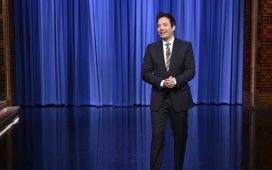
The chief executive of Johnson & Johnson has warned that potential US tariffs on the pharmaceutical industry could lead to shortages of medicines.
The industry was excluded from wide-ranging tariffs announced this month, but the Trump administration has made it clear it is considering using them to try to boost domestic manufacturing.
The US currently has no tariffs on pharmaceuticals because of an exemption in the 1994 World Trade Organisation trade deal.
Joaquin Duato, who leads one of the world’s biggest pharma and medical device companies, said in a call with analysts on Tuesday: “There’s a reason why pharmaceutical tariffs are zero. It’s because tariffs can create disruptions in the supply chain, leading to shortages.”
Medical devices and technology such as the surgical robots made by J & J have been hit by the new US tariffs.
“If what you want is to build manufacturing capacity in the US, both in medtech and in pharmaceuticals, the most effective answer is not tariffs but tax policy,” Mr Duato said.
In March, J & J announced it would invest $55 billion (€8.8 billion) in new plants in the US over the next four years, which it said was a 25 per cent increase in investment compared with the previous four years.
On Monday, the US administration said it had started an investigation of the national security implications of relying on imports of medicines. The probe was started on April 1st and will consult for 21 days.
Mr Duato said he thought it was important for healthcare companies to work with the administration to “mitigate some of the vulnerabilities that exist … in our healthcare supply chain”, in response to a question about the investigation and potential tariffs.
[ Inside the pharma industry’s lobbying campaign to water down reformsOpens in new window ]
J&J’s chief financial officer Joe Wolk said the administration’s investigation into drug imports, widely seen as a first step toward imposing levies on the industry, could actually be beneficial. The investigation is likely to show most medicines shipped to the US are cheap generics, not the innovative therapies sold by J & J, he said.
“In some respects, it could very much be good news,” he said. “The last thing anybody wants is to deny a cancer patient the oncology therapeutic that will help them not only cope with the disease but conquer it.”
The pharmaceutical industry has generally refrained from publicly condemning the tariffs, hoping that behind-the-scenes negotiations will prevail. But Mr Duato’s comments come after Michel Demaré, AstraZeneca’s chairman, warned on Friday that tariffs could harm patients and health systems and “restrict health equity”.
In results published on Tuesday, J & J maintained its adjusted diluted earnings per share forecast for the year of $10.50-$10.70, despite factoring in $400 million in costs related mostly to tariffs on medical devices.
Its sales in the first quarter of the year were $21.9 billion, up 2.4 per cent from the same period last year. Analysts had expected $21.6 billion.
J&J’s decision not to slash its forecast is “a welcome relief in the wake of recent stock market turmoil,” Leerink analyst David Risinger wrote in a note to clients.
The fact that J & J didn’t increase its guidance despite the strong quarter suggests the company is being cautious ahead of what could be a tumultuous year, Bloomberg Intelligence analysts John Murphy and Sam Fazeli wrote. – Copyright The Financial Times Limited 2025/Bloomberg












